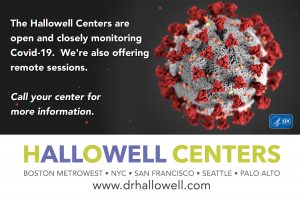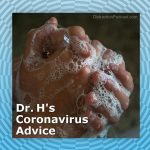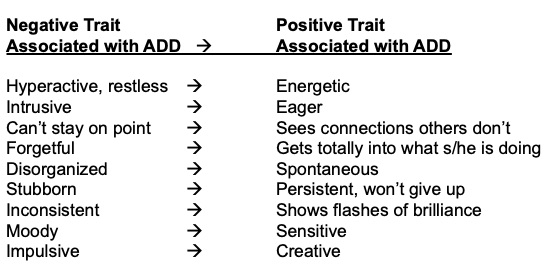I want to take a moment in these uncertain times to tell you what we are doing in my centers in Sudbury, MA and in Manhattan to address the issues created by the threat of Covid-19, as well as what my wife, Sue, and I are doing at home.
First of all, we are following my first rule, “Never worry alone.”
We are all talking with each other, and listening to what our friends and various experts are reporting, day by day, even hour by hour.
Second, we are trying our best to get the facts.
Most of toxic worry is rooted in lack of information, wrong information, or both. As, as we worry together, we are pooling what we each judge to be the most reliable and pertinent facts, a pool that expands and changes not just hour to hour but minute to minute. Thank God for the Internet and television.
Third, based on the facts that we share, we make a plan.
Toxic worry—and all the bad decisions it foments—subsides when you have a plan. Toxic worry results from a heightened feeling of vulnerability combined with a diminished feeling of power and control. When you have a plan you automatically feel less vulnerable and more in control. If the plan doesn’t work well—and all plans have flaws—you revise it. That’s what life is all about—revising plans. So we are constantly reviewing and considering revising our plan.
The Hallowell Centers Update
 As of now, 9:45 a.m. on Monday, March 16, 2020, the plan in both my MA and NY office is to remain open. We rarely have more than 15 people—clinicians and patients combined—in either office at any one time. And the offices are large enough that we can keep 4-6 feet between people, obeying the command to keep social distance.
As of now, 9:45 a.m. on Monday, March 16, 2020, the plan in both my MA and NY office is to remain open. We rarely have more than 15 people—clinicians and patients combined—in either office at any one time. And the offices are large enough that we can keep 4-6 feet between people, obeying the command to keep social distance.
We have hand sanitizers on the counters and good liquid soap in the rest rooms. We have signs summarizing best practices during this pandemic, and we ask all who enter the offices about fever, headache, respiratory distress, sniffles, and any other illness, as well as recent travel.
Offering Remote Appointments
Furthermore, we offer remote appointments, conducted via the HIPPA compliant platform VSee, for all our clients and patients. Since, with the exception of testing, all our work can be conducted remotely, this provides an excellent and totally safe option which many are taking us up on. However, for those who do want to see us in person, we remain open and available as of now.
Personal Update
Personally, Sue and I have semi-quarantined ourselves. We do go out to buy food, and we have resisted the temptation to buy out the store. While we do have enough food to last us 2 weeks if the absolute need arose, that is not the most tasty food—canned goods like canned beef stew, which Sue deems “nasty” and canned veggies, which no one much likes—and since there are only 2 of us we do not need nor do we have much toilet paper!
Our three children all live elsewhere. Our 30 year old daughter works for the National Football League, whose offices in Manhattan, where she works, have closed for the time being, so our daughter works from home. Our youngest, who is 24, also works in Manhattan for Inkhouse, a p.r. firm, who is requiring all employees to work from home. And our middle child, our 27 year old son, lives near us outside of Boston. He works as a carpenter, out of doors, but his projects are temporarily on hold. His dog, Max, is not a carrier, but does stay inside.
There you have it. We are all living in the midst of uncertainty, and like most uncertainty, this uncertainty feels ominous, dangerous, and possibly lethal. It already has proved itself to be all that, so we have good reason to worry.
But passive worrying soon becomes toxic. I outlined above the best way I know of to turn toxic worry into active problem solving. In the active mode, you are at your best and you reach the smartest decisions.
Remember, we are all in this together.
This virus knows no race, creed, color, or class. It does target older, weaker people over younger stronger people, and it does preferentially target people who choose ignorance and denial over gaining knowledge and acting upon it.
So, let’s band together.
#1Never worry alone.
#2 Get the facts.
#3 And make, and revise, plans.
Our most powerful allies are the positive connections between us, and knowledge. By using those tools, and replenishing them all the time, we will survive, and thrive. Yes, the danger is real and can be lethal, but the solutions are equally real, time-tested, and life-saving.
My heartfelt and most loving wishes go out to you all. Let this crisis bring us all closer together through cooperative action, and shared reflections.
Edward (Ned) Hallowell, M.D.
P.S. If you’re feeling stressed, listen to my podcast on How to Feel Less Stressed.
One of the bright and shining lights in the current dismal viral fog is the beam of human altruism. Read more in my blog post, Altruism Lives.








